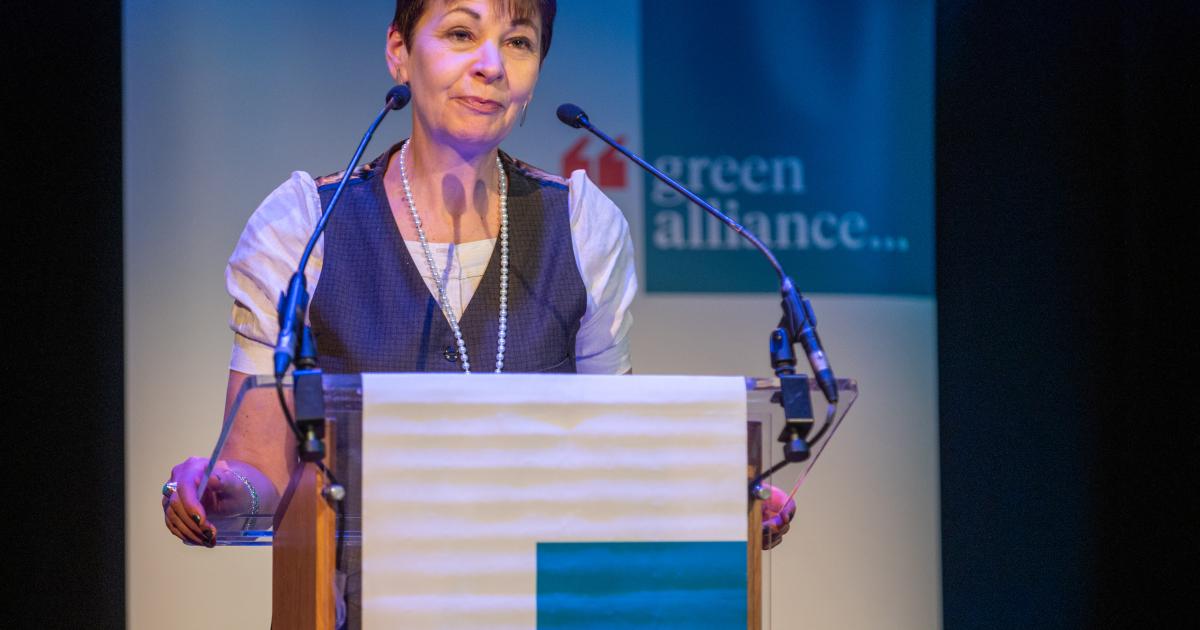
“The current political rules are an obstacle to securing a liveable future, and until the rulebook is torn up, we must all be alert to the possibility that, rather than being the agents for real change, we are colluding in maintaining the status quo.,” she said.
The environmental movement shied away from talking about issues such as resource use, transport and food “for fear of being shut out, or sounding too radical,” she said.
The movement was still allowing one narrative to dominate the political discourse – that prosperity was defined by the unending quest for GDP growth, which had become “overriding, all consuming, all destroying”.
“There’s no way to seriously address the triple crisis of climate, nature, inequality without transforming the economic and political systems,” she said.
Lonely voice
However, when she had bought up these issues in Parliament, Lucas admitted: “I have frankly often felt like a lonely voice, without collective cover and policy support about how it could be done. When I have put my head above the parapet, it did sometimes feel to me that some of you were keeping yours down in damage limitation mode.
“I understand that instinct, but at such a serious moment in human history, we can’t afford to settle for anything less than what the science demands,” she said. This meant taking on and changing the system and the power structures that enable it, and funding that by properly taxing wealth and redistributing it, she added.
“Friends, we urgently need to close the gap between what’s scientifically and ethically essential, and what is currently deemed to be politically possible,” she said.
Social justice
In order to win the debate, environmental campaigners needed to spend more time talking to those who were yet to be persuaded, rather than “talking to each other on Twitter”, she said. Environmental NGOs should also be prepared to drop their brands and work together in a more deeply collaborative way, she suggested.
They also needed to place a much stronger emphasis on social justice, which should be at the heart of everything the movement does, she said. “That whole fairness dimension isn’t sufficiently embedded, and it won’t be embedded if we’re not serious about funding the transition.
“We cannot allow ourselves any examples of where transition has happened on the back of the poorest people, and that means serious money on the table,” she said.
The environmental movement needs to have a broader agenda, she said. “You do need to care about the wealth tax, you do need to care about the redistribution of funds, otherwise this is simply not going to happen, it just isn’t. That joined-upness has got to be taken forward in the next 14 years, because we haven’t got it right in the last 14.”
The Green Party this week launched its election manifesto, which outlines its proposals for a wealth tax.
Click here to read the Ecologist’s review of ‘Another England: how to reclaim our national story’ by Caroline Lucas.
This Author
Catherine Early is a freelance environmental journalist and chief reporter for the Ecologist. She tweets at @Cat_Early76.
- SEO Powered Content & PR Distribution. Get Amplified Today.
- PlatoData.Network Vertical Generative Ai. Empower Yourself. Access Here.
- PlatoAiStream. Web3 Intelligence. Knowledge Amplified. Access Here.
- PlatoESG. Carbon, CleanTech, Energy, Environment, Solar, Waste Management. Access Here.
- PlatoHealth. Biotech and Clinical Trials Intelligence. Access Here.
- Source: https://theecologist.org/2024/jun/13/caroline-lucas-environmental-ngos-need-be-more-radical
